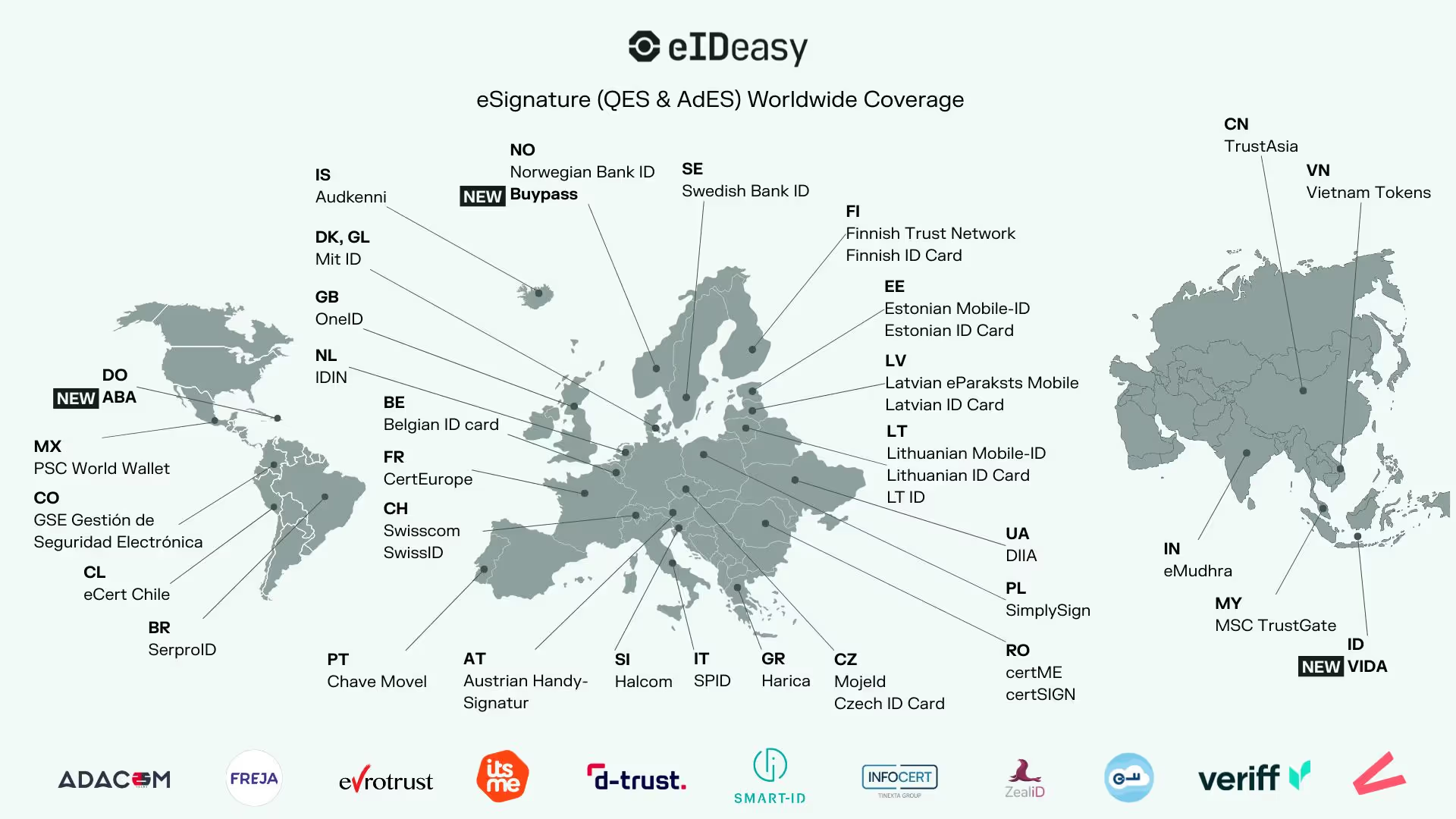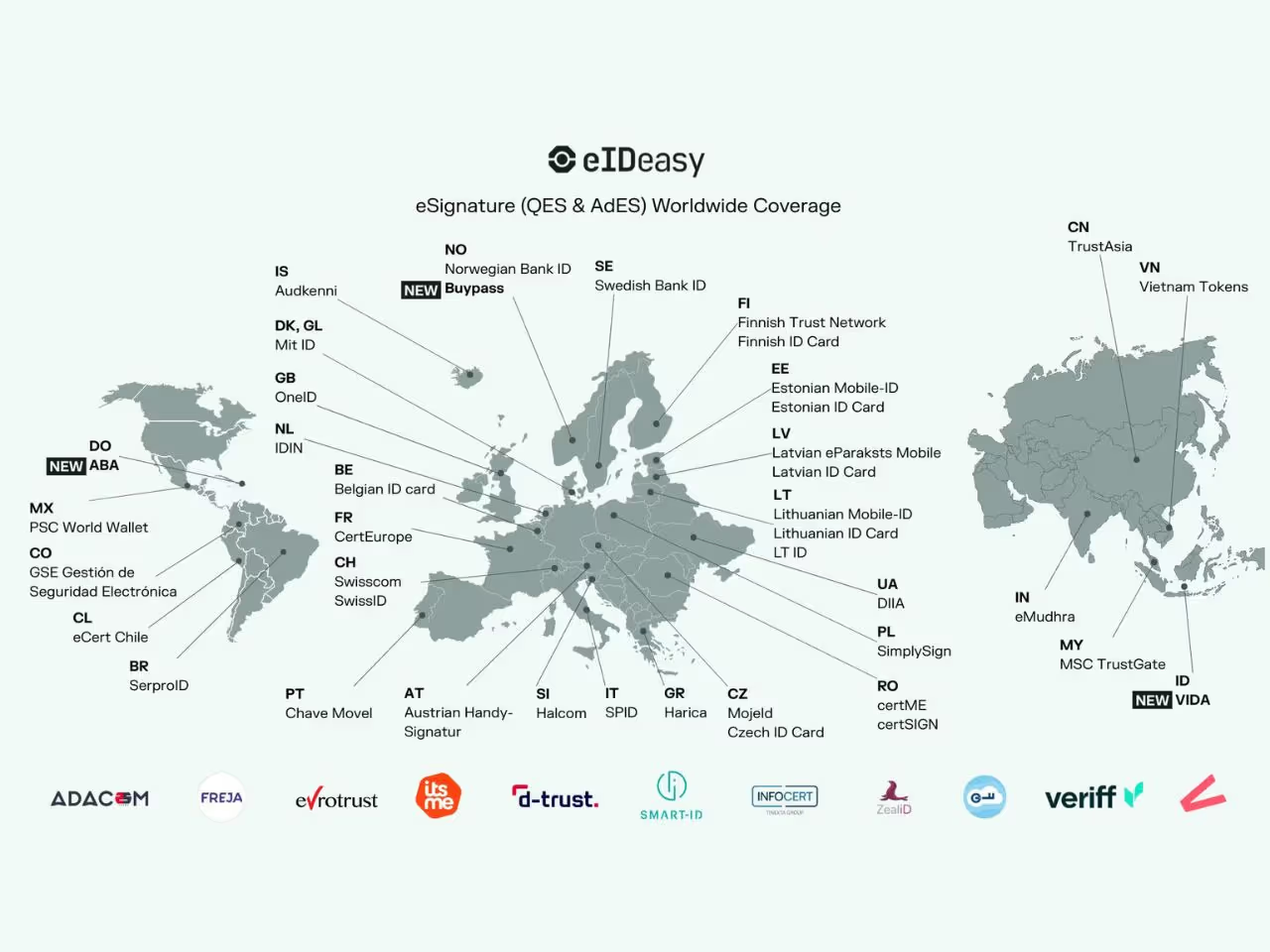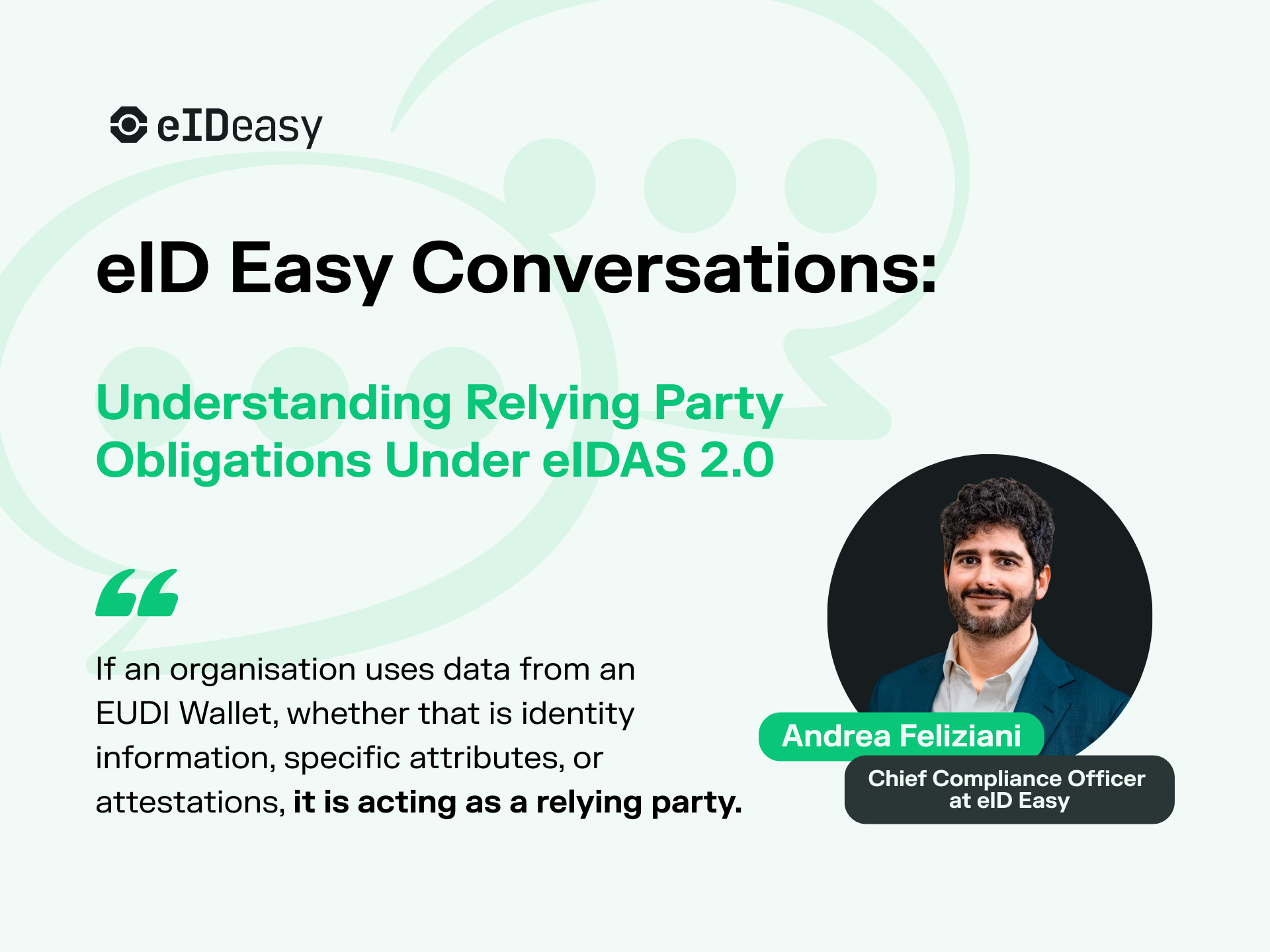We are pleased to share the latest developments of the eID Easy API Platform below.
*Please note that definitions of terms used in the newsletter can be found at the end of the document.
Latest Focus
eID Easy continues to deliver new signature integration solutions each month. At the same time, we’re working to improve the capabilities of previously integrated methods.
This includes:
- enabling batch signing where supported;
- allowing signers to choose between multiple certificates when available; and
- providing integrators with access to hash signing and other advanced features.
→ The eID Easy API already offers a wide range of integration options for different use cases.
We follow several international standards for eID and eSignature—such as OIDC, CSC API, and others. Ongoing improvements focus on ensuring that all supported methods are upgraded to comply with the latest standards where applicable.
Recent Releases
New signature solutions and features recently introduced:
- Norway – Buypass ID-based QES
- Dominican Republic – ABA one-shot local cloud signatures
- Indonesia – VIDA local signatures
- Larger Signature Batch Sizes – Faster processing and improved efficiency

Upcoming Updates (Short Term: 1–2 Months)
- Google Wallet & U.S. Mobile Driver’s Licenses – Online identity verification
- Bulgaria – Borica B-Trust app QES
- IgniSign – QES with ease of onboarding in many countries
- JavaScript UI Components – Upgraded for better functionality and user experience
- OIDC Protocol – Extended to all eID identity verification methods for stronger security and compatibility
- Uruguay – TuID local signatures
- Argentina – Digilogix local signatures
Longer-Term Plans (Evaluation Stage, No ETA)
- Turkey – USB token and cloud signature integration
- Italy – SPID eID support
- Identity and Signature Configuration Updates – Enhanced method ordering and filtering
Key Features Previously Released
- Batch Signatures – Sign multiple documents with a single confirmation
- eSeals – Automated company signatures without user interaction
- Adacom – One-shot QES without any app or user account
- Mexico – NOM151-compliant signatures
- Austria – A-Trust powered ID-Austria: supports hash and batch signing
- Freja eID – Compatible with passports from 167 countries
- LT ID – Newly introduced Lithuanian government eID and QES app
- Nordic Countries – Support for hash-based XML signatures without certificates
Definitions used in this newsletter:
Adacom – A one-shot Qualified Electronic Signature (QES) solution that works without requiring an app or user account.
Batch Signatures – Allows multiple documents to be signed in a single session with one confirmation.
Borica B-Trust – A Qualified Electronic Signature provider in Bulgaria offering app-based signing.
Buypass ID – A Norwegian eID method that supports Qualified Electronic Signatures (QES).
CSC API (Cloud Signature Consortium API) – An international standard for implementing cloud-based digital signatures.
Digilogix – A local signature provider in Argentina offering compliant electronic signatures.
eSeals – Automated company signatures applied without human interaction from a signer.
Hash Signature – A privacy-preserving signing method where only a document’s hash is shared, not its full content.
IgniSign – A QES provider offering low-cost signatures with minimal onboarding in multiple countries.
JavaScript UI Components – Front-end components integrated into web applications for electronic signing, recently upgraded for better performance.
Local Cloud Signature – A country-specific, cloud-based signature method that operates within national legal frameworks (e.g., ABA in the Dominican Republic).
Local Signature – A government-approved signature method tailored for a specific country, often providing QES.
NOM151 Compliance – A Mexican legal standard required for electronic signatures to be recognized as official and enforceable.
OIDC (OpenID Connect) – An identity protocol used to authenticate users securely and standardize eID verification across systems.
One-Shot Signature – A certificate created for a single signing session after identity verification, then immediately discarded.
QES (Qualified Electronic Signature) – The highest level of legally recognized electronic signature in the EU and some other jurisdictions.
Signature Method – A defined technical approach used to execute digital signatures, such as batch signing, cloud signatures, or hash signing.
USB Token – A hardware device used to securely store digital certificates and perform secure digital signing.
New Feature Requests
We pride ourselves on our customer-centric business and are keen to ensure our product roadmap meets the needs of our growing customer base. For any additional feature requests or general feedback, please reply to this email or feel free to schedule a call with Margus Pala.


